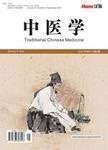基于“前列腺–膀胱跨器官敏化”学说探讨中医改善慢性前列腺炎下尿路症状机制
Based on the Theory of “Prostate-Bladder Cross-Organ Sensitization” to Explore the Mechanism of Traditional Chinese Medicine (TCM) in Improving Lower Urinary Tract Symptoms of Chronic Prostatitis作者机构:成都中医药大学临床医学院四川 成都
出 版 物:《中医学》 (Traditional Chinese Medicine)
年 卷 期:2025年第14卷第1期
页 面:350-356页
学科分类:1002[医学-临床医学] 100210[医学-外科学(含:普外、骨外、泌尿外、胸心外、神外、整形、烧伤、野战外)] 10[医学]
主 题:“前列腺–膀胱跨器官敏化”学说 中医药 慢性前列腺炎 下尿路症状
摘 要:本文基于“前列腺–膀胱跨器官敏化学说,挖掘中医改善慢性前列腺炎下尿路发生机制,其中核心靶点:1) 盆腔神经激活;2) 膀胱过度活跃;3) 神经生长因子过度表达等。中医方面:从中药药理学分析获得缓解慢性前列腺炎下尿路症状的主要活性成分,利用网络数据库获取主要成分的药物靶点,揭示了中医在:1) 单味中药:黄芪、肉苁蓉、石斛等,能够多成分、多靶点、多通路协同调控缓解慢性前列腺炎下尿路症状;2) 方剂:栝蒌瞿麦丸合桃核承气汤缓解湿热瘀滞型CP及三黄清淋汤与盐酸坦洛新缓释片协同缓解CP症状;3) 针灸:针刺取穴关元、中极、气海、三阴交等缓解慢性前列腺炎下尿路症状。发现中医可通过靶向作用于慢性前列腺炎具体发病通路,进而证明“前列腺–膀胱跨器官敏化学说的可行性,为临床提供了新的理论依据及研究思路。Based on the theory of “prostate-bladder cross-organ sensitization, this paper explores the mechanism of traditional Chinese medicine in improving the lower urinary tract of chronic prostatitis, including the core targets: 1) Pelvic nerve activation;2) Overactive bladder;3) Nerve growth factor over-expression. As for traditional Chinese medicine (TCM), we obtained the main active ingredients to relieve the lower urinary tract symptoms of chronic prostatitis from the pharmacological analysis of traditional Chinese medicine, and obtained the drug targets of the main ingredients by using the network database. It is revealed that TCM can relieve the lower urinary tract symptoms of chronic prostatitis with multi-component, multi-target and multi-pathway synergistic regulation: 1) single Chinese medicine: Astragalus membranaceus, Cistanche, Dendrobium, etc. 2) Prescription: Gualou Qumai Pill and Taohe Chengqi decoction for relieving CP of damp-heat and blood stasis, Sanhuang Qinglin decoction and tamsulosin hydrochloride sustained release tablets for relieving CP symptoms;3) Acupuncture: acupuncture was applied at Guanyuan (CV 4), Zhongji (CV 3), Qihai (CV 6), Sanyinjiao (SP 6), etc. to relieve the lower urinary tract symptoms of chronic prostatitis. It is found that TCM can target the specific pathogenesis pathway of chronic prostatitis, and thus prove the feasibility of the theory of “prostate-bladder cross-organ sensitization, which provides a new theoretical basis and research ideas for clinical practice.




